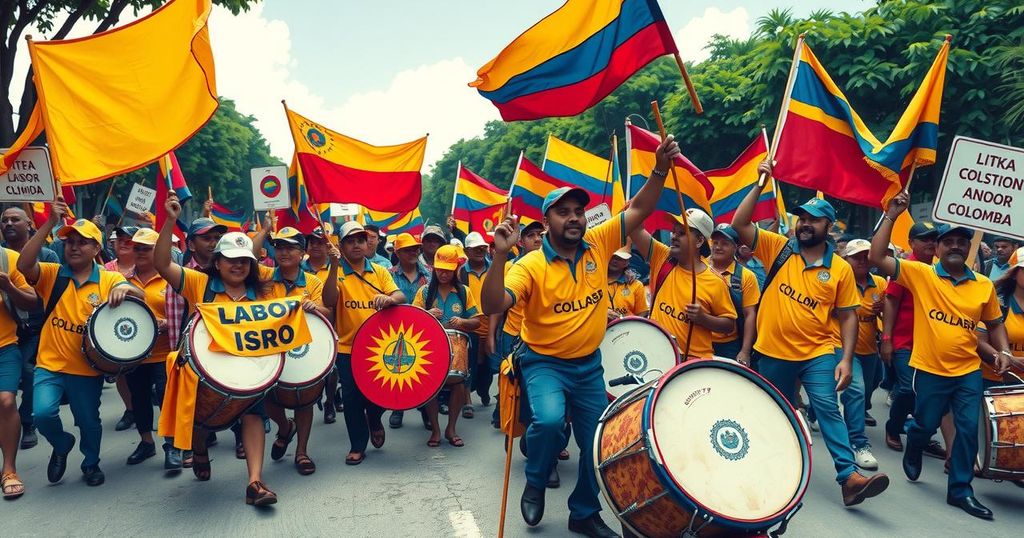Colombia’s Labor Unions Strike to Support President’s Referendum on Labor Laws
Colombia’s labor unions are on a 48-hour strike supporting President Gustavo Petro’s labor referendum. This referendum seeks to give voters the power to reform labor laws after Congress repeatedly blocked Petro’s proposals. The escalating tensions highlight the ongoing conflict between the presidency and Congress, with potential implications for the political landscape ahead of elections.
Colombia’s labor unions have initiated a 48-hour strike in response to President Gustavo Petro’s proposal for a referendum that would empower voters to determine significant changes to the country’s labor laws. This strike reflects mounting frustrations as Congress has repeatedly blocked Petro’s labor reform efforts, which he argues are essential for improving workers’ rights. The referendum proposed aims to address core issues, including potentially capping workdays at eight hours.
The decision for the work stoppage was a direct consequence of a call from President Petro, following the Congress’s rejection of his labor reform plan on two occasions, the latest of which occurred in March. On May 1, he presented a referendum proposal consisting of twelve questions aimed at reshaping labor legislation. However, when Congress voted against it by a narrow margin of 49-47 just two weeks later, tensions surged, prompting Petro to criticize lawmakers, accusing them of undermining workers’ rights.
Fabio Arias, president of the United Workers’ Central, emphasized the unions’ position, stating, “We are telling the Senate that it cannot continue legislating against the working class.” His union aims to rally support from at least 3 million workers to demonstrate their solidarity with the referendum. Throughout Colombia’s major cities, union members took to the streets, with significant demonstrations in the capital city, Bogotá, where protesters obstructed bus lanes, causing disruptions for thousands.
Participants expressed grievances about their rights in the workforce. Yeimy Cante Toro, a member of a union representing non-governmental organization workers, articulated her struggle, saying, “I’m mobilizing because I feel that my rights have been violated.” This sentiment echoes the frustrations felt by many union members throughout the country.
In a strategic move, Interior Minister Armando Benedetti announced that if Congress does not revisit the referendum by June 1, President Petro will proceed with a decree to authorize it unilaterally. The contentious relationships between Petro and Congress extend back to his inauguration in 2022, escalating as he aims to solidify his legacy ahead of the upcoming legislative and presidential elections, where he stands eligible for reelection.
Political analyst Mauricio Velásquez of the University of Los Andes noted the political implications of Congress’s earlier rejection of labor reform, suggesting that it provided Petro with leverage to revive political discourse. “Congress gave the government a lifeline at a moment of great weakness by rejecting the labor reform,” Velásquez remarked, emphasizing the potential for Petro to reinterpret this legislative failure as a catalyst for political engagement.
The 48-hour strike led by Colombia’s labor unions underscores a significant moment in the ongoing clash between President Gustavo Petro and Congress over labor reforms. With the referendum proposal hovering in legislative limbo and the fast-approaching deadline for potential executive action, the political dynamics are palpable. Both unions and President Petro are vying for change, positioning workers’ rights at the forefront of this heated debate as the nation eyes upcoming elections.
Original Source: www.independent.co.uk




Post Comment